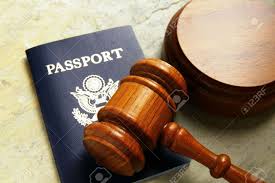Can I travel overseas with a criminal record?
Travel is great. You can see the world, widen your horizons, meet new and interesting people. If you have the opportunity to travel then you absolutely should. Though, if you have a criminal record, you have to ask yourself will your criminal record affect your holiday plans. Could something like drug possession or assault charge from 20 years ago stop you from going on the holiday of your dreams?
The short answer is it might. Depending on where you’re aiming to be travelling the amount of criminal history on your record, the nature of the crime and the amount of time past since your last conviction you may find it hard to be granted a Visa.
For example, Australians who want to travel within the Schengen Zone a group of European countries including Belgium, Austria, Denmark, France, Germany, Italy, Spain, Sweden, Portugal and more, do not need a visa if they are “travelling for tourist purposes if their stay will last no longer than 90 days”. Many countries don’t stop applicants from entering because of a minor or long past criminal history, however, exceptions are made when it comes to violent or particularly recent convictions.
Another aspect to consider if you’ve been convicted as a criminal charge is the issue of probation or parole. If you are currently on probation or parole then leaving the country without permission is out of the question and could result in a revocation of your parole.
Travelling to the US
Travelling to the United States is an entirely different story as they have a more radical Visa application program. Although Australia is a member of the Visa Waiver Program meaning tourists can apply for 90-day ESTA Visas fairly simply any convictions, un-adjudicated arrests, or even a previously refused visa makes you ineligible to apply for travel through the VWP.
When it comes to issuing Visas, some consider the US to be one of the strictest countries to be able to travel to because they do not recognise exemptions for “spent” or “pardoned” convictions in the same way the UK does so you must disclose your criminal record when applying for Visas no matter how minor or how long ago your conviction occurred.
Travellers are also ineligible to enter the US if they have been convicted of certain crimes with the exception of single DIC/DUI such as those crimes involving ‘moral turpitude’. However, the list of offences under this category are imprecise and can vary greatly from one jurisdiction to another.
Offences under this category range from fraud and prostitution to murder and include:
- Crimes against property.
- Crimes against government authority.
- Crimes against persons, family and sexual morality.
- Or anyone convicted of an “aggravated felony”.
According to US Customs and Border Protection, having a conviction for driving under the influence, breaking and entering, disorderly conduct and simple assault are not considered crimes that automatically disqualifies you from entry into the U.S. Keep in mind though, if you have more than one conviction in conjunction with other misdemeanours, you could be denied entry.
The only way you’ll be able to know if you can travel to the US with a criminal record is when you apply for a Visa. The US conducts extensive security checks on all visa applicants. You will need to present a criminal history report and a consular officer will determine your eligibility during the visa application process. If you try to travel to the US without a visa you could be refused entry. You may be able to apply for a temporary waiver even if your conviction makes you ineligible but processing can take more than 6 to 8 months so you need to plan your trip early.
Travelling to Canada
Canada’s entry policy is similar to the US and anyone with a criminal record no matter how minor, even a drink-driving conviction, may be excluded from entering Canada. If you do have a conviction and want to enter Canada, you could submit an application for rehabilitation, under the Rehabilitation of Offenders Act 1974. However, this is a long process during which you must prove through numerous references that you are rehabilitated and future offences are unlikely. You may also be considered rehabilitated if a certain period of time has passed since the offence.
Even if you need to apply for a visa to travel to certain countries, the application form may not require you to disclose your criminal record. It all depends on the country in question.
This is just a general guide and by no means an exhaustive list when it comes to travelling abroad with a criminal record. If you want to be sure you will be granted entry into a foreign country or better yet, not deported once you get there, save yourself the time and money by checking in with the immigration department of the country or consulting their website to find out what their particular rules are.
Remember always be honest when asked about your criminal record, otherwise, you run the risk of being banned from that country or worse charged with providing false information.
If you want the freedom to globetrot wherever you want, your best bet is ultimately to not have a criminal record at all. However, if that is not possible and you are facing a pending conviction, talk to a criminal lawyer about whether your charges can be dismissed under Section 10.
Otherwise happy travelling!







